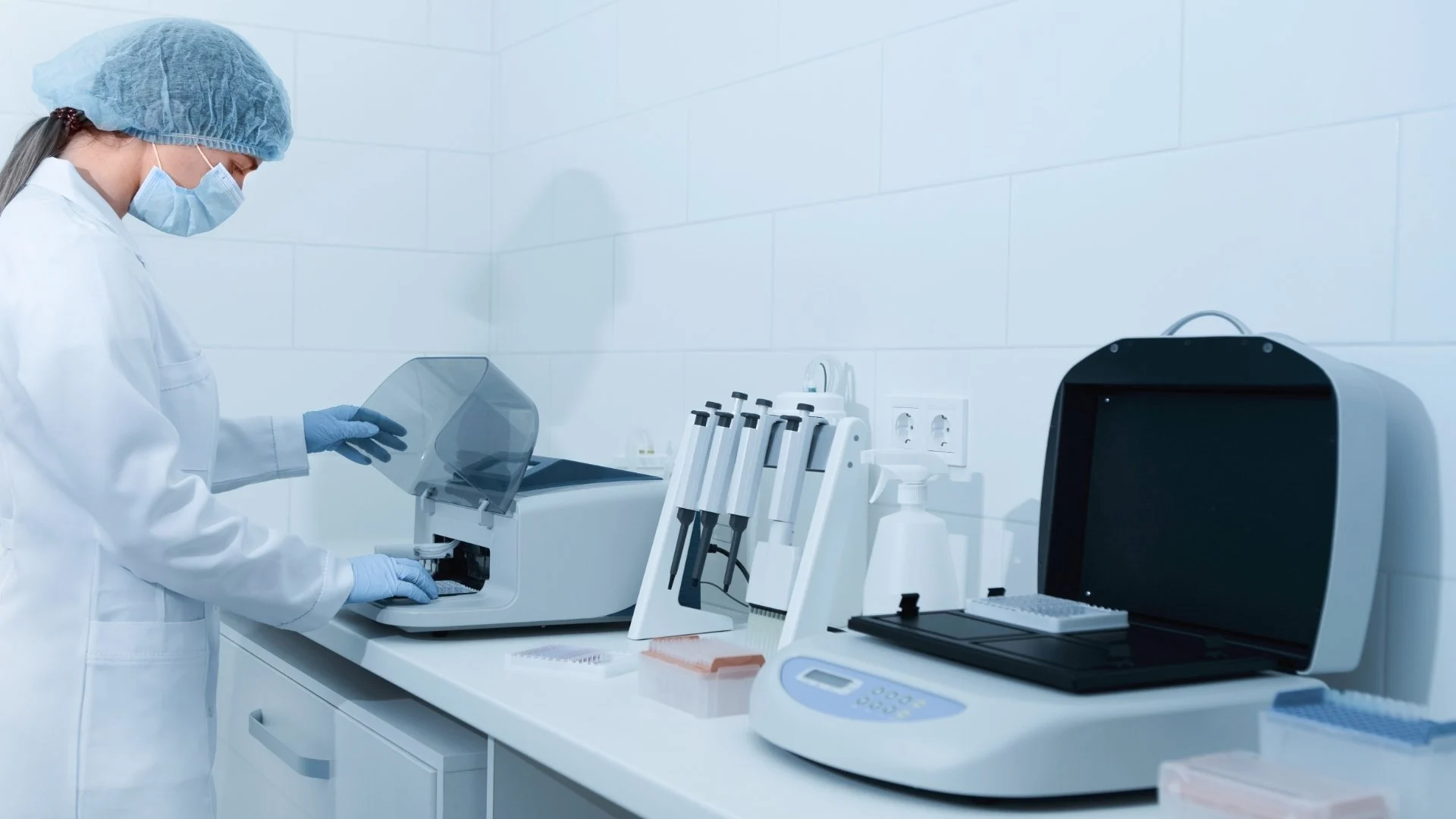Drug and Alcohol
Galaxy Gas Brain Damage

Discover how nitrous oxide misuse can harm the brain. Learn the risks, symptoms, and long-term effects of galaxy gas brain damage and addiction.
If you’ve been using nitrous oxide, you might think it’s just harmless fun. But repeated use can cause serious neurological harm, leading to what’s known as galaxy gas brain damage. This damage can affect your memory, coordination, and emotional health, leaving lasting effects that are difficult to ignore.
The good news is, you don’t have to let nitrous oxide control your future. With the right treatment and support, healing and recovery are possible. Our center is here to help you reclaim your health and protect your brain for the long term.
What Is “Galaxy Gas”? Quick Facts

“Galaxy Gas” is a popular brand name for flavored nitrous oxide canisters, often marketed as whipped cream chargers. While these small metal cartridges have a legitimate culinary use, many people misuse them for recreational inhalation, often calling them “whippets” or “balloons.”
Inhaling nitrous oxide produces a rapid, short-lived high that can feel euphoric and disorienting. Because the effects fade quickly, people often repeat inhalations in a short period, increasing exposure and risk.
At The Edge Treatment Center, we see how easy it is for something marketed as a party product to spiral into harmful use. Recognizing Galaxy Gas for what it is—a potentially dangerous drug—is the first step in protecting your health or supporting someone you love.
How Nitrous Oxide Can Harm the Brain — Mechanisms
Nitrous oxide may seem harmless because it is used every day in medical and dental settings. The difference lies in dose, supervision, and context. Under controlled medical use, oxygen is provided alongside nitrous oxide, and patients are monitored closely.
Recreational use removes those safeguards and introduces risks that can cause both immediate and long-term brain injury.
Acute Effects
When you inhale nitrous oxide, the gas displaces oxygen in the lungs. This can quickly reduce the amount of oxygen reaching your brain, a condition called hypoxia.
Even brief episodes of hypoxia can cause dizziness, confusion, fainting, or, in severe cases, seizures and unconsciousness. Oxygen deprivation is especially dangerous when repeated or when combined with alcohol or other depressants.
Chronic Effects
The longer-term neurological harm of nitrous oxide is tied to vitamin B12. Nitrous oxide inactivates B12, a vitamin essential for producing myelin, the protective coating around nerves. Without myelin, nerves lose their ability to transmit signals efficiently.
This process—known as demyelination—can lead to numbness, weakness, loss of coordination, and cognitive changes. Over time, this damage can affect both the spinal cord and the brain, sometimes leaving lasting deficits.
Additional Risks
Peripheral neuropathy: tingling, numbness, or burning pain in the hands and feet.
Psychological impact: mood swings, depression, and even psychosis in some cases.
Physical injury: frostbite of the mouth, lips, or lungs from inhaling cold gas directly.

We’re Here To Help You Find Your Way
Would you like more information about mental health or drug addiction? Reach out today.
Signs & Symptoms to Watch For
Understanding the warning signs of galaxy gas brain damage can help you or someone you care about seek help before permanent harm occurs. The symptoms may start subtly and gradually worsen with ongoing use.
Neurological Signs
Tingling or numbness in the fingers and toes
Difficulty walking, stumbling, or problems with balance
Weakness or fatigue in the arms or legs
Tremors or loss of coordination
Cognitive and Emotional Changes
Trouble with memory or concentration
Confusion or slowed thinking
Depression, anxiety, or sudden mood swings
In rare cases, hallucinations or psychosis
Acute Red Flags
Fainting or losing consciousness
Seizures
Shortness of breath or chest pain
Diagnosis & Medical Workup
When someone presents with neurological changes linked to nitrous oxide use, a comprehensive evaluation is essential.
This process usually begins with a detailed medical history and honest disclosure about nitrous oxide use. Many people feel embarrassed or reluctant to share, but honesty is key to proper care.
Physical and Neurological Examination
Doctors check reflexes, strength, balance, coordination, and sensation. Subtle changes in these areas can reveal damage even before symptoms become severe.
Laboratory Testing

A standard blood test for vitamin B12 may not tell the full story, since levels can appear normal even when B12 is inactive. Additional markers such as methylmalonic acid and homocysteine are often measured to confirm a functional deficiency.
Imaging and Specialized Tests
MRI scans can show changes in the spinal cord or brain linked to demyelination.
Nerve conduction studies assess how well electrical signals travel through nerves.
Differential Diagnosis
Because numbness, weakness, and cognitive changes can stem from other causes—such as multiple sclerosis, diabetes, or other nutritional deficiencies—ruling out alternative explanations is important.

We’ll Lead You to New Heights
Do you have more questions about mental health or drug addiction? Reach out.
Treatment & Recovery
Stopping nitrous oxide use is the first and most critical step in recovery. But simply quitting is not always enough. Galaxy gas brain damage requires both medical and therapeutic intervention to address the physical injury and the underlying addiction.
Medical Interventions
Vitamin B12 Replacement: For many, injections of B12 are given over weeks to months, allowing the body to rebuild myelin and restore nerve function. Oral supplements may be added but are rarely enough on their own.
Monitoring Recovery: Follow-up tests track improvements in nerve conduction and vitamin markers.
Rehabilitation: Physical therapy helps regain strength and coordination, while occupational therapy supports daily functioning.
Psychological and Addiction-Focused Care

Many people use nitrous oxide to cope with stress, anxiety, or emotional pain. Without addressing these root causes, relapse is likely.
Therapy approaches such as Cognitive Behavioral Therapy (CBT) and Dialectical Behavior Therapy (DBT) help clients build healthier coping skills.
Support groups and family therapy can also strengthen recovery by rebuilding trust and communication.
The Edge Treatment Center’s Approach
At The Edge Treatment Center, we recognize that no two people experience addiction or recovery the same way. That’s why we create individualized plans that combine medical care, mental health treatment, and relapse prevention.
For clients dealing with neurological complications from nitrous oxide, we work alongside neurologists and rehabilitation specialists to provide integrated support. We also focus on long-term recovery, guiding clients from early detox to aftercare planning.
Harm Reduction & Prevention
While the safest option is to avoid recreational use of Galaxy Gas entirely, harm reduction strategies can reduce immediate risks for those who are still using.
Avoid High-Risk Practices
Never inhale directly from a canister — the cold gas can cause burns to the lips, throat, or lungs.
Don’t use nitrous oxide in enclosed or poorly ventilated spaces, as this raises the risk of hypoxia.
Never combine Galaxy Gas with alcohol or sedatives, since this multiplies the risk of unconsciousness and accidents.
Practical Prevention
Keep canisters out of the hands of teenagers and children.
Talk openly about the real risks of nitrous oxide, countering the idea that it’s a harmless party drug.
Encourage regular medical checkups for anyone who has been using heavily.
Legal Considerations
Some states and cities have already restricted the sale of nitrous oxide to minors or enacted bans on recreational packaging. This reflects a growing awareness of the neurological risks associated with products like Galaxy Gas.

We’re Here To Help You Find Your Way
Do you need advice about mental health or drug addiction? Reach out today.
Galaxy Gas Brain Damage Affecting You? We Can Help
Galaxy Gas may seem harmless, but repeated use can lead to serious brain and nerve damage that changes your life in lasting ways. If you or someone you care about is struggling with nitrous oxide abuse, recovery is possible.
At The Edge Treatment Center, we provide compassionate, personalized care that addresses both the neurological effects and the emotional challenges of addiction. You don’t have to face this alone—our team is here to help you take back your health and future. Reach out today and begin your journey toward lasting healing and recovery.
Does Galaxy Gas (Nitrous Oxide) Cause Brain Damage?
Yes. Repeated or heavy use of Galaxy Gas can damage the brain and nerves by depleting vitamin B12, leading to neuropathy and cognitive problems. Early medical care, including B12 replacement and stopping use, can reverse some effects before permanent harm occurs.
What Are the First Signs of Nitrous Oxide–Related Nerve Damage?
Early warning signs often include tingling, numbness, weakness, and difficulty walking or balancing. These symptoms may develop gradually with repeated use. If you notice them, it’s important to seek medical attention quickly, as early diagnosis and treatment improve recovery outcomes significantly.
Can Vitamin B12 Treatment Reverse Galaxy Gas Brain Damage?
Yes, in many cases. Prompt vitamin B12 injections, combined with stopping nitrous oxide use and rehabilitation, can restore nerve function and prevent further injury. However, delays in treatment increase the risk of lasting neurological damage, making early medical intervention critical for recovery.
Is Galaxy Gas Addiction Treatable?
Absolutely. Addiction to nitrous oxide responds to comprehensive care, including medical evaluation, counseling such as Cognitive Behavioral Therapy, and relapse-prevention strategies. At The Edge Treatment Center, we provide personalized treatment plans that address both neurological complications and emotional needs, supporting lasting recovery and long-term well-being.
When Should I Go to the Emergency Room After Inhaling Nitrous Oxide?
Seek emergency care immediately for seizures, unconsciousness, breathing trouble, chest pain, or sudden weakness. Persistent numbness, balance issues, or mood changes also need urgent evaluation. Prompt treatment can prevent long-term brain and nerve damage from nitrous oxide use, protecting your overall health.

We’re Here To Help You Find Your Way
If you or a loved one is struggling with addiction, there is hope. Our team can guide you on your journey to recovery. Call us today.
Written by
 Brian Moore
Brian MooreContent Writer
Reviewed by
 Jeremy Arzt
Jeremy ArztChief Clinical Officer
Drug and Alcohol
October 31, 2025
